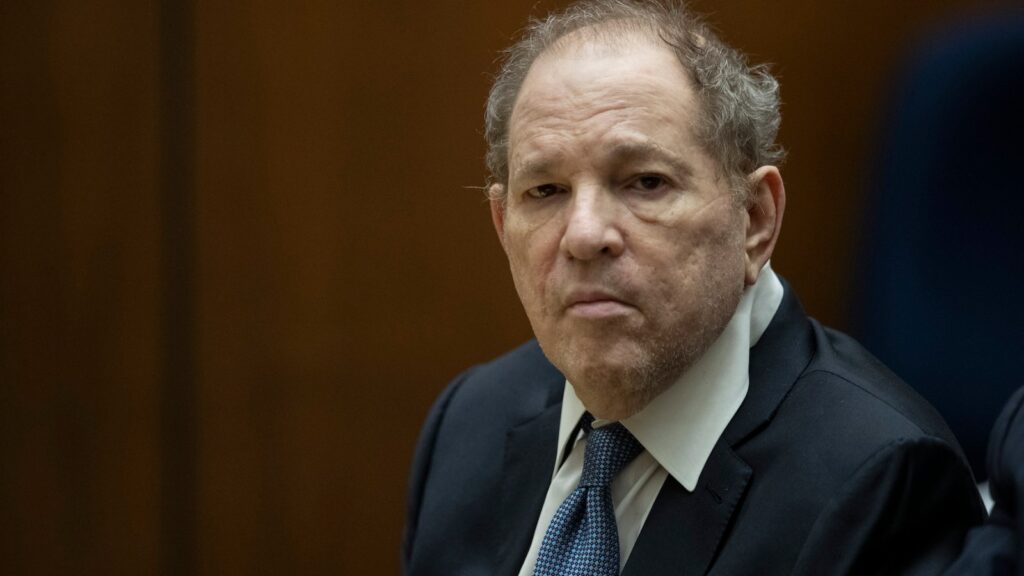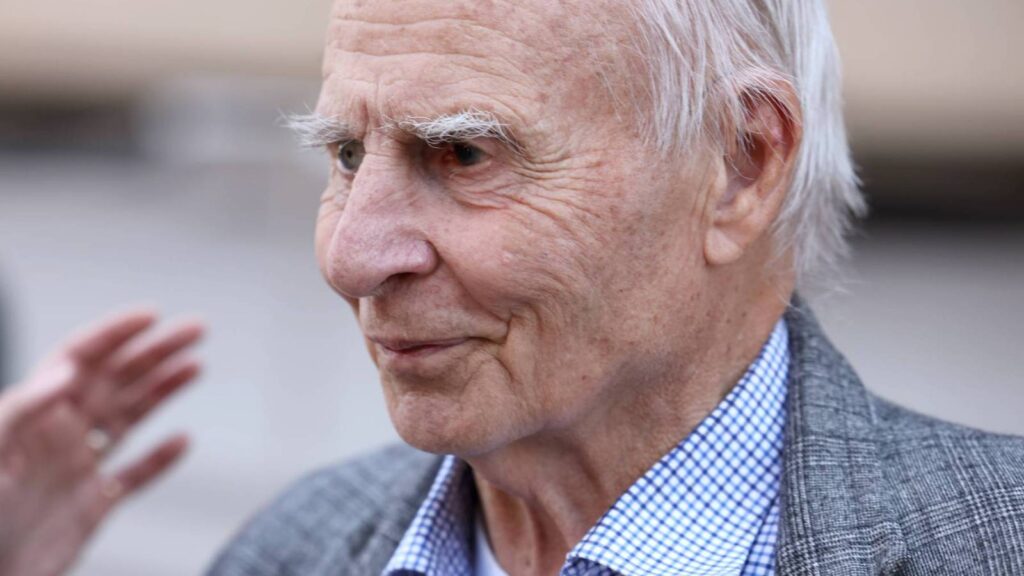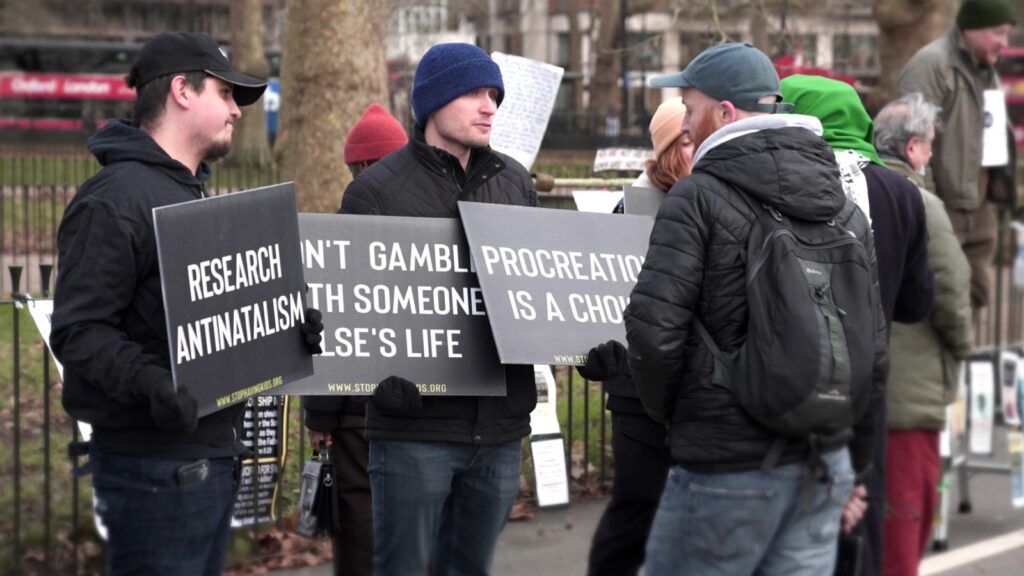Harvey Weinstein Rape Conviction Overturned by New York Appeals Court
Four years after Harvey Weinstein was found guilty of rape in New York, a victory for the #MeToo movement, the disgraced film mogul’s conviction has been overturned. On Thursday, the New York Court of Appeals reached a 4-3 decision to overturn the conviction.
In a 77-page decision, the majority of judges decided that the judge who oversaw Weinstein’s trial, Justice James M. Burke, should not have allowed prosecutors to let accusers whose allegations were not part of the charges against him to testify in the trial.
Alvin J. Bragg, the Manhattan district attorney who is currently prosecuting a case against Donald Trump, will now have to decide what course to take next with Weinstein, whom more than 100 women have accused of sexual misconduct. “We will do everything in our power to retry this case, and remain steadfast in our commitment to survivors of sexual assault,” a rep for the district attorney told the Times.
Weinstein is currently serving time in a Rome, New York, prison. The New York Times reported that Weinstein was not immediately a free man since he was sentenced to a separate 16-year sentence in California in a separate sexual assault case. After processing, he’ll be sent to California.
In a call with the Times, Weinstein’s attorney, Arthur Aidala, said he was grateful to the Court of Appeals “for upholding the most basic principles that a criminal defendant should have in a trial.”
At a press conference Thursday afternoon, Aidala said Weinstein’s legal team was ready to “start from scratch” with a defense for a new trial. Weinstein, the lawyer said, is also prepared to give testimony on his own behalf. “Harvey will, under this new ruling, be able to take this stand, will be able to tell his side of this story,” Aidala said. “And [he’lll] be very consistent with what he said all along, which is, ‘Yes, there was a sexual encounter between me and [accuser] Mimi Haleyi, but I never forced her to do anything.’”
A jury found Weinstein guilty of two out of five charges against him in February 2020: a felony sex crime and third-degree rape. He was found not guilty of the heaviest charge at the time, predatory sexual assault. The charges related to two victims, a former production assistant named Mimi Haleyi, who accused Weinstein of assaulting her in 2006 (the sex crime charge), and an aspiring actress, Jessica Mann, who said Weinstein raped her in a hotel in 2013 (the rape charge). The judge subsequently sentenced Weinstein to 23 years in prison.
In the Thursday ruling, Court of Appeal Judge J. Rivera wrote that the decision to allow other accusers to testify was “highly prejudicial” to Weinstein. “Defendant [Weinstein] was convicted by a jury for various sexual crimes against three named complainants and, on appeal, claims that he was judged, not on the conduct for which he was indicted, but on irrelevant, prejudicial, and untested allegations of prior bad acts,” Rivera wrote. “We conclude that the trial court erroneously admitted testimony of uncharged, alleged prior sexual acts against persons other than the complainants of the underlying crimes because that testimony served no material non-propensity purpose.”
The accusers who testified but were not part of the case are known as Molineux witnesses, referring to witnesses who can speak to a defendant’s misbehavior. Three Molineux witnesses gave testimony.
“Today’s decision is a major step back in holding those accountable for acts of sexual violence,” attorney Douglas H. Wigdor, who represented two of the Molineux witnesses, said in a statement. “Courts routinely admit evidence of other uncharged acts where they assist juries in understanding issues concerning the intent, modus operandi, or scheme of the defendant. The jury was instructed on the relevance of this testimony and overturning the verdict is tragic in that it will require the victims to endure yet another trial.”
“In New York, Molineux witnesses play a critical role in establishing a defendant’s common scheme or plan to commit alleged crimes,” attorney Lindsay Goldbrum, who represented one of the Molineux witnesses who testified, said in a statement. “When a defendant is accused of being a sexual predator, especially one as powerful as Weinstein, the testimony of Molineux witnesses is crucial to disproving the defense that sexual encounters were consensual. … Today’s ruling unfortunately casts a dark shadow on their bravery and will undoubtedly deter future sexual assault victims from coming forward.”
Court of Appeals Judge J. Singas wrote the dissenting opinion for the minority of judges, calling the majority’s decision to overturn Weinstein’s conviction dangerous for victims of sexual abuse. “Men who serially sexually exploit their power over women — especially the most vulnerable groups in society — will reap the benefit of today’s decision,” Singas wrote. “Under the majority’s logic, instances in which a trafficker repeatedly leverages workers’ undocumented status to coerce them into sex, or a restaurant manager withholds tips from his employees unless they perform sexual acts becomes a series of individual ‘credibility contests’ and unrelated ‘misunderstandings.’ After today’s holding, juries will remain in the dark about, and defendants will be insulated from, past criminal acts, even after putting intent at issue by claiming consent.”
Singas argued that this new precedent casts a shadow over the future of sexual assault cases in New York. “Forgotten are the women who bear the psychological trauma of sexual violence and the scars of testifying again, and again,” Singas wrote. “This erosion of precedent, born from a refusal to accept that crimes of sexual violence are far more nuanced and complex than other crimes, comes at the expense and safety of women. Until we recognize and account for these differences, we cannot claim to dispense fairness and justice for all.”
This story was updated at 2:40 p.m. on April 25 to include a quote from Arthur Aidala‘s press conference.





